Myanmar Earthquake Appeal
A catastrophic earthquake has struck Myanmar. Donate now to support affected communities.
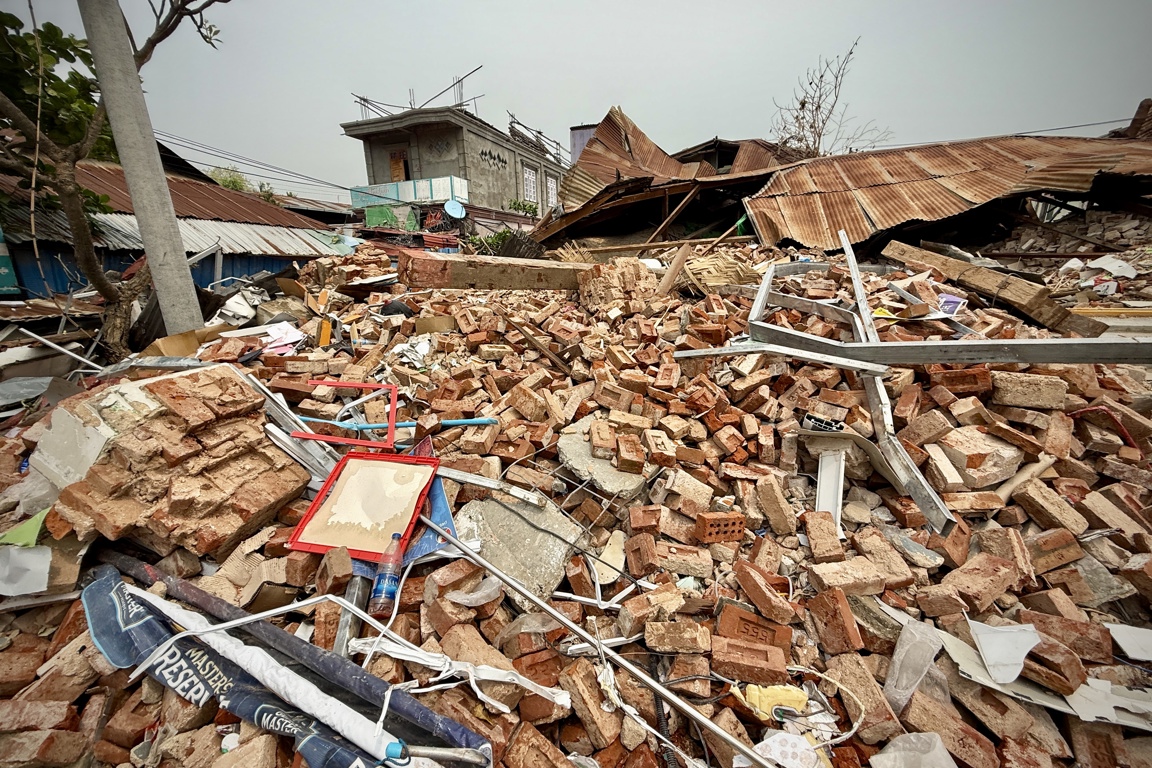
Rubble in a town following the Myanmar earthquake. Photo: Benny Manser for Caritas.
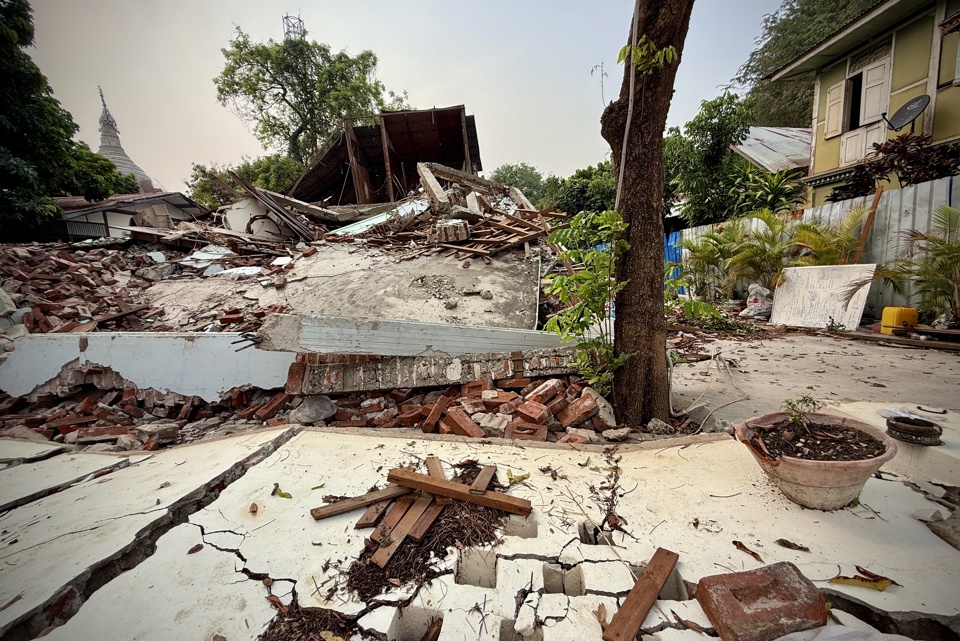
Buildings damaged by the Myanmar earthquake. Photo: Benny Manser for Caritas.
What is the current situation in Myanmar?
- On March 28, 2025, Myanmar experienced a 7.7 magnitude earthquake, with its epicenter in Sagaing Region, near the center of Myanmar.
- The earthquake and its continual aftershocks have pushed 2 million people into critical need of assistance and protection
- Entire communities have been upended, with widespread destruction of homes, health facilities and critical infrastructure;
disrupted markets; prolonged power and water outages; severely limited telecommunications; and damaged or obstructed transport routes. - Extensive damage to roads, bridges, and essential utilities
severely complicates damage assessments and the distribution of aid. - 3,700 people are confirmed dead with 4,800 injured.
- Myanmar is already facing a severe humanitarian crisis, with 19.9 million people – more than a third of the population – in need of humanitarian assistance. The earthquake has exacerbated these challenges, putting additional strain on the country's resources and response capabilities.
- Up to 80% of infrastructure has been destroyed near the epicentre.
- Many remote areas are cut off and cannot be accessed due to damaged roads and bridges.
- The health system is under extreme pressure, with urgent needs in hospitals and medical facilities.
- The earthquake impacted several countries, including Bangladesh, India, Laos, Thailand, and China.
- One of our partners has a presence on the ground in affected areas and has recently implemented projects in affected regions.
- Caritas staff are all safe. Our partner office in Mandalay suffered some damage during the earthquake and staff homes in Mandalay diocese also collapsed.
- Urgent needs include food, drinking water, healthcare, psychosocial support, cash assistance and emergency shelter.
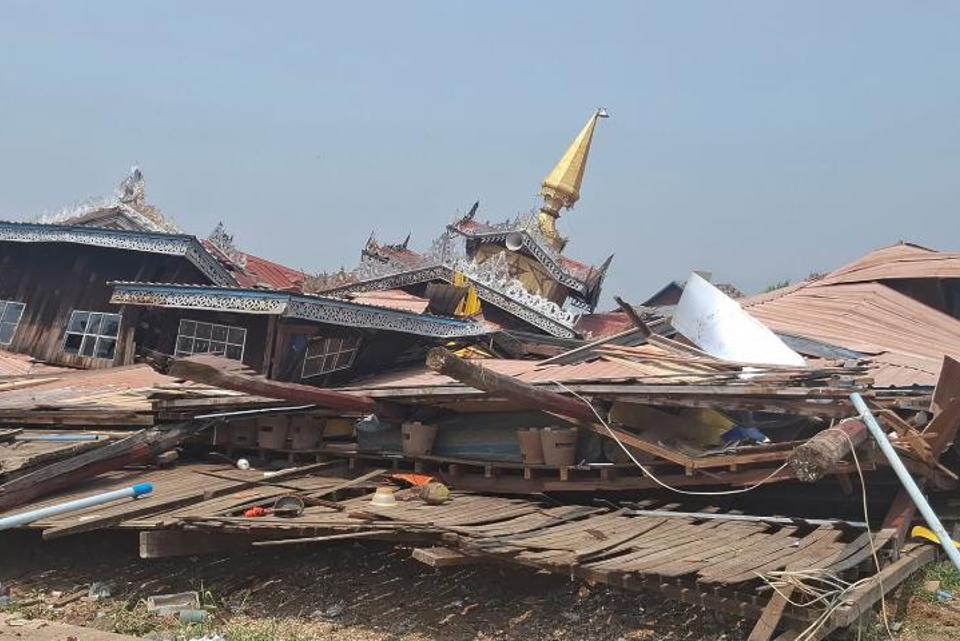
Damaged buildings from the Myanmar earthquake. Photo: Caritas Network.
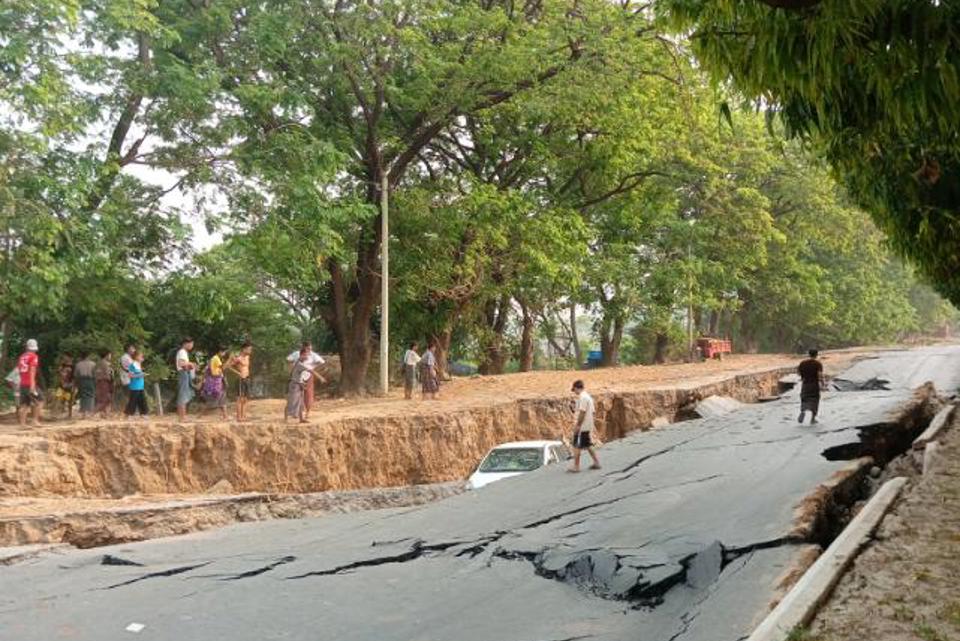
Damage to the road between Mandalay City and Sagaing. Photo: Caritas Network.
What are the major issues facing victims of the Myanmar earthquake?
- Essential infrastructure has been destroyed including roads, bridges, and public buildings like hospitals.
- Ongoing conflict, political and economic turmoil, and natural disasters have already stretched resources to breaking point.
- Millions of people in Myanmar are facing acute food insecurity.
- There is a severe shortage of medical aid.
- Families who have lost homes are sleeping on the street, and the monsoon season is coming.
- Waterborne diseases are on the rise.
Critical needs: what do people in Myanmar need most right now?
The disaster has created an urgent need for:
✔️ Emergency shelter and food for displaced families.
✔️ Clean water and support for hygiene and sanitation.
✔️ Essential medicines, health and psychosocial support.
✔️ Recovery and rescue efforts.
Our partners were serving some of the most vulnerable displaced people in Myanmar through an initiative supported by the US government. However, that funding has now been terminated, leaving tens of thousands of families without hygiene supplies, agricultural support and resources to care for and support their families. The need has never been greater.
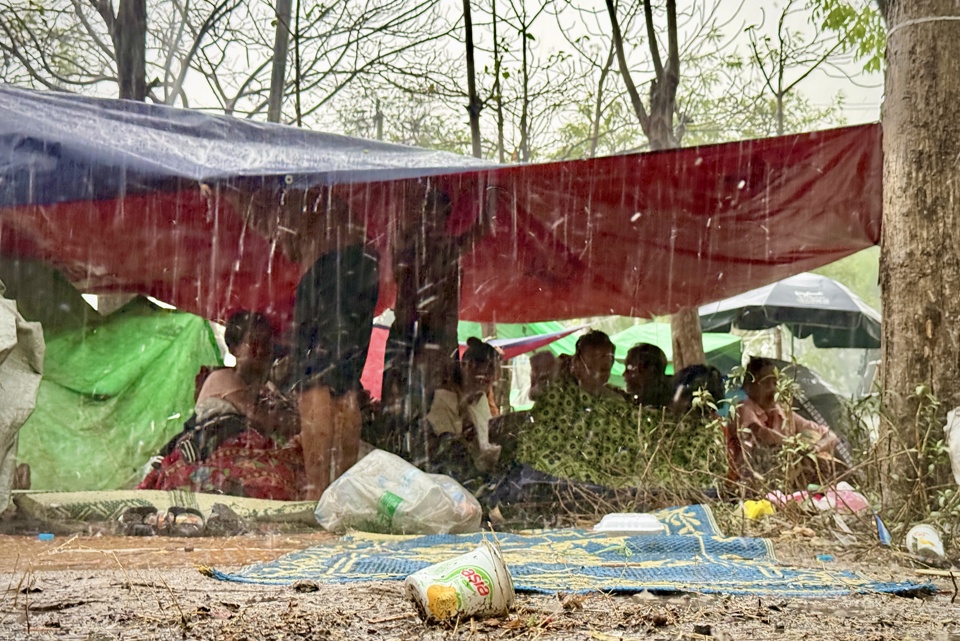
Families shelter from the rain under tarps following the Myanmar earthquake. Photo: Benny Manser for Caritas.
Suffering in Myanmar
A 7.7 magnitude earthquake
has caused devastation in Myanmar.
At least 3,700 people
have been killed, with causality numbers expected to rise.
At least 4,800 people
have been injured, with casualty numbers expected to rise.
19.9 million people
in Myanmar were already in need of humanitarian assistance.
The immediate needs include:
Food and water access
Emergency Shelter
Household items including mattresses and blankets
Health and Psychosocial Support
Stand with Myanmar—Donate Today
Your donation can help Myanmar's most vulnerable with emergency shelter, essential supplies, food and water provisions, and health and psychosocial support.
Donate now to help families in Myanmar.
How your donation helps
Humanitarian toll of the Myanmar earthquake
📌 Casualties
-
Over 3,700 people are confirmed dead.
-
4,800 people have been injured.
-
Hundreds of people are missing.
-
Numbers are expected to rise in the coming days and weeks.
📌 Humanitarian crisis
-
19.9 million people were already in need of humanitarian assistance in Myanmar prior to this disaster.
- The earthquake will put pressure on already scarce resources and exacerbate issues facing the population.
How is Caritas Australia responding to the Myanmar earthquake?
- Our partners are on the ground in Myanmar coordinating a detailed assessment of the extent of the damage and what the ongoing needs will be.
- Partners are responding to the immediate needs of affected communities and have already provided the following:
- Shelter kits for 1,700 households.
- Drinking water for 548 households
- Fortified biscuits for 2,189 households, in partnership with the World Food Programme (WFP)
- Blankets, kitchen sets, mosquito nets and tarps for 1,000 households, in partnership with The UN Refugee Agency (UNHCR)
- Ongoing response will include emergency shelter, food and clean water access, sanitation and hygiene support, health and psychosocial support, and support for recovery efforts.
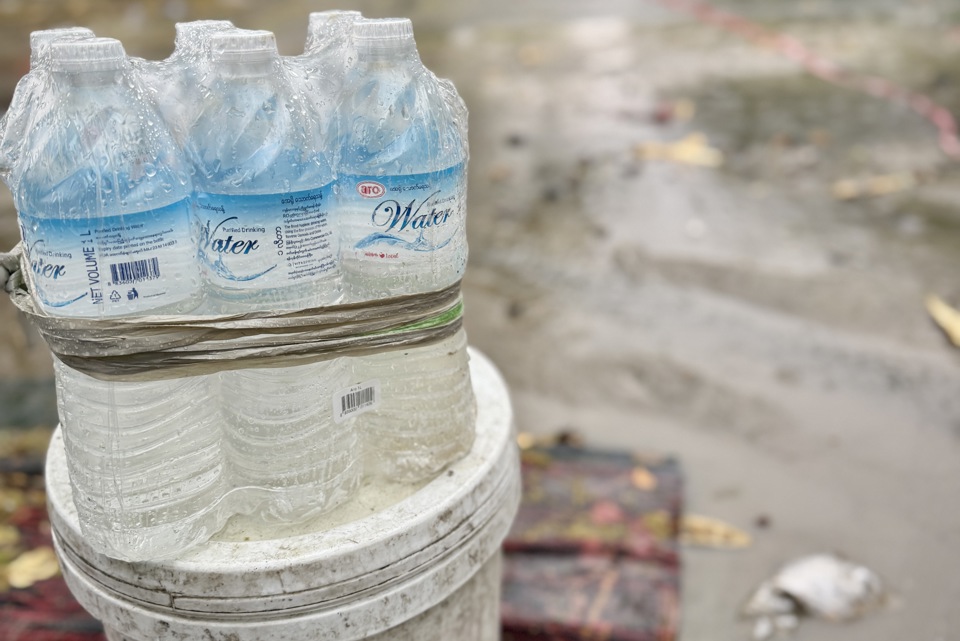
Bottled water distribution in Mandalay, Myanmar. Photo: Benny Manser for Caritas.
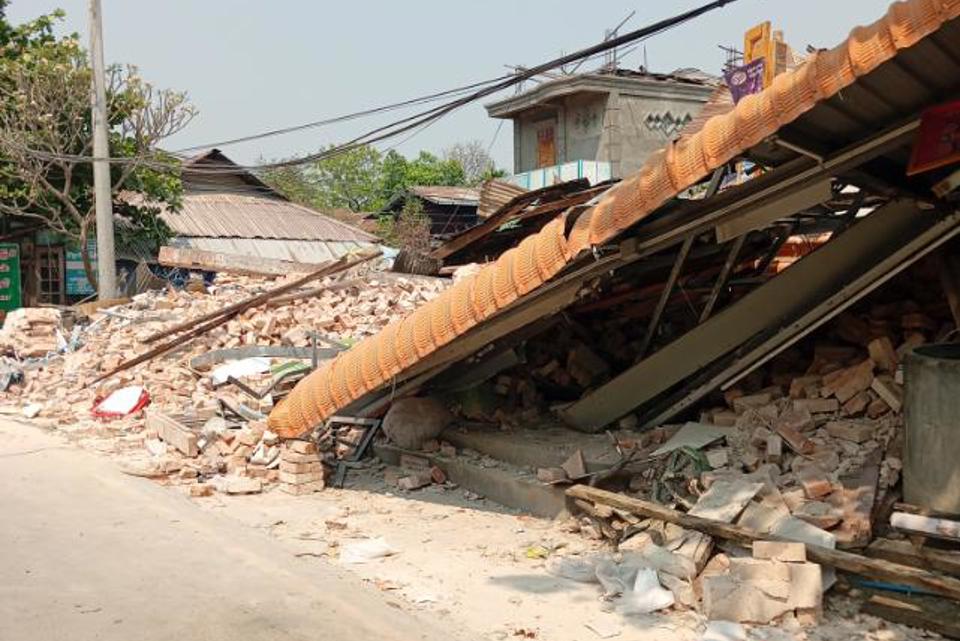
Damaged buildings in Sagaing. Photo: Caritas Network.
Our long-term work in Myanmar
- We have worked hand-in-hand with local communities in Myanmar for nearly twenty years.
- The ongoing conflict in Myanmar has forced many people from the country across the borders into neighbouring countries.
- We work with our partners in Myanmar and in the Myanmar-Thailand border to support the most vulnerable communities, particularly women and children, through education and nutritional support.
The local church: a lifeline in a crisis
- The local church has long been embedded in the heart of affected communities, earning deep trust through years of service, care and relationship-building.
- Because of its deep roots and trusted relationships, the church is
uniquely positioned to respond—distributing urgent aid, coordinating among diverse partners, and offering families and communities emotional and spiritual support. - Global Caritas members are supporting the response of the local Church as it carries out emergency efforts in affected areas.
- Already, local Church partners have carried out assessments and distributions for displaced families.
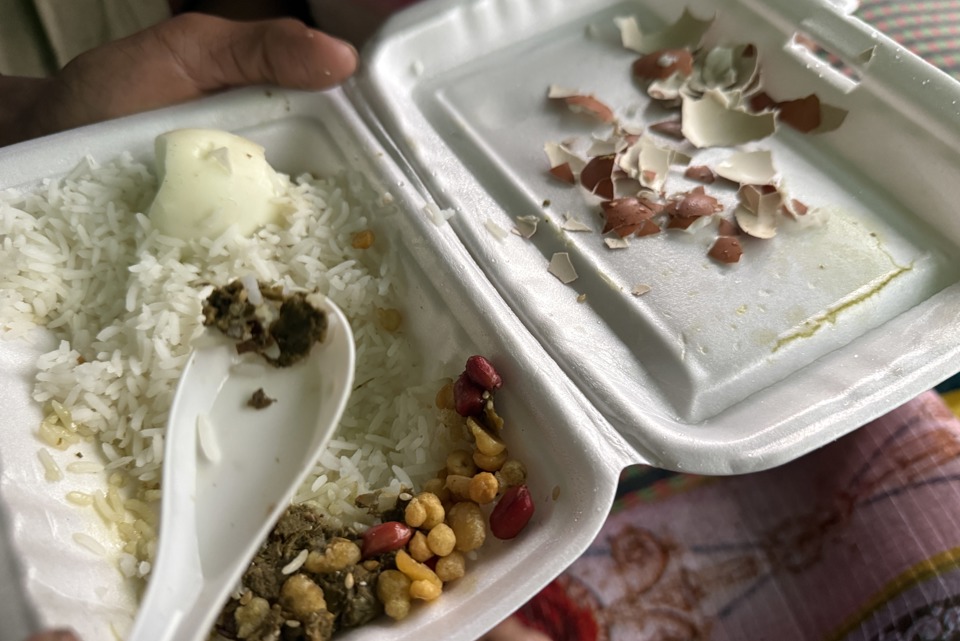
Emergency food distribution in Myanmar. Photo: Benny Manser for Caritas.
Stories from Myanmar
Daw Hla Hla's story
Daw Hla Hla* and her 6-month-old baby son had to leave their home in an apartment block which was severely damaged by an earthquake. They are currently staying in a temporary shelter.
“Before the earthquake, I was looking after my baby. My husband works in a tea shop making traditional snacks. It was sufficient for our family. We stayed on the 2nd floor of an apartment block, but when the earthquake happened, the ground floor of the building collapsed... During the earthquake, I was very afraid for my baby.
I prefer to stay in my own house as there are a lot of people here and it’s an open area with no privacy. Some charities and groups come and distribute food and medicines to us. They also provide drinking water.
There was heavy rain last night and now it’s raining too. However, it’s not only me in this situation; a lot of people are suffering from the earthquake, so I’m just trying to get by.”

Daw Hla Hla and her son in temporary shelter following the Myanmar earthquake. Photo: Benny Manser for Caritas.
Daw Khin's story
Daw Khin* had to leave her home in an apartment block which was destroyed by the earthquake. She is currently staying in a temporary shelter.
“Before the earthquake I lived alone as my son and daughter are married. I tried to survive on my own as a casual worker, selling things such as vegetables, flowers, or grapes. I didn’t have my own house before the earthquake, but I rented an apartment... It was destroyed, so I came here alone and survive on donations... I lost my home, so I’m very sad and it’s a big challenge. I get drinking water from donations, but taking a shower is very far, about 30 minutes walking, and costs 200 Myanmar Kyat."
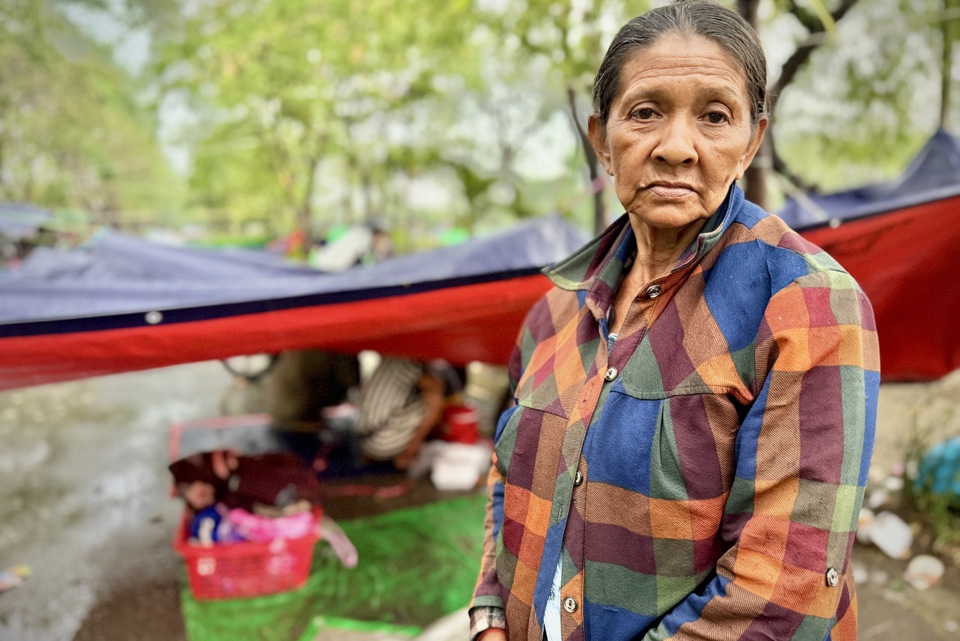
Daw Khin in temporary shelter following the Myanmar earthquake. Image: Benny Manser for Caritas.
Social justice for Myanmar
Our work is shaped by the principles of Catholic Social Teaching:
The Dignity of the Human Person
The Common Good
Subsidiarity and Participation
Solidarity
Preferential Option for the Poor
Economic Justice
Care for our Common Home
Promotion of Peace
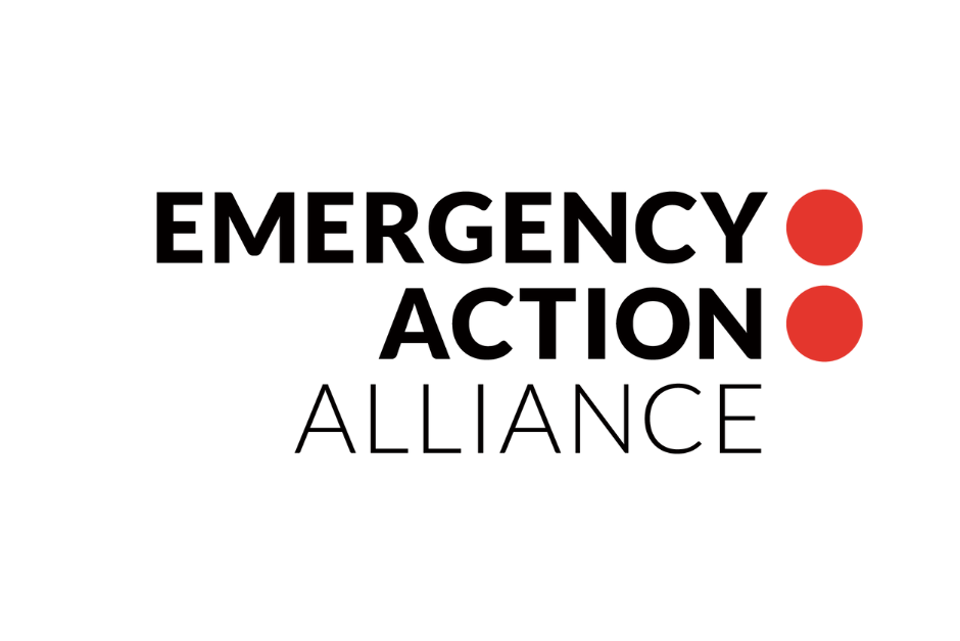
Emergency Action Alliance
Caritas Australia is a founding member of the Emergency Action Alliance.
By combining our capacity with 15 other leading humanitarian organisations we can turn the care and passion of our supporters into a targeted response to international emergencies.
This allows us to help more people in their greatest moment of need.
FAQ
Your donation will be used to support our partners on the ground in Myanmar to deliver support to vulnerable communities with emergency shelter, health and psychosocial support, and access to clean water, sanitation, food and long-term recovery effort.
Choose an Australian charity that is working in Myanmar or has direct partnerships with organisations that are working in Myanmar that aligns with your values. To ensure your donation is going to be used effectively, check their website to see what percentage of funding goes to programs. Reputable charities will have this information readily available.
You can help people in Myanmar by donating to a charity that is working in Myanmar or has direct partnerships with organisations that are working in Myanmar that aligns with your values. Your voice has power - share links to reputable charity appeals with friends and family, and on social media. You can also contact your local MP to express your views and ask that they send more humanitarian support to Myanmar.
No, our partners on the ground are best placed to decide where funds are directed based on their expertise and first-hand experience of the priority needs of the population, and the current context and access situation.
Our partners have been working on the ground in Myanmar and neigbouring countries for decades providing humanitarian assistance. Our partners are intimately familiar with the context, logisitcs and systems on the ground to ensure donations reach those in need. We have deep experience ensuring donations get where they are needed in a politically-neutral manner. We are DFAT accredited and ACFID signatories, ensuring that we have responsible governance of funds at the highest level.
Yes. All donations over $2 are tax-deductible for Australia.
No, we do not accept donations of goods. Goods can cause logistical issues and block the arrival of much needed aid. Donations of money allow us to ensure that what is arriving is what the population needs, while supporting the local economy.
Yes, we provide aid to those who need it most, regardless of background, religion, gender, sexuality, or political differences. We prioritise the most vulnerable community members including children, the elderly, and people living with disabilities.
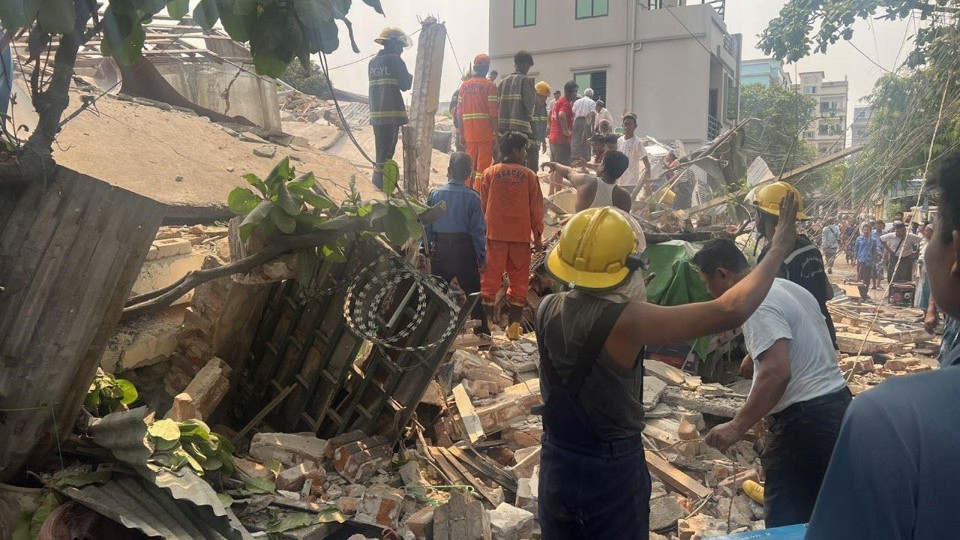
Emergency services and locals respond to the devastation in Myanmar. Photo: Credit Chindwin News Agency
Where does my donation go?
The funds you donate to this appeal go to Caritas Australia’s Emergency Response Fund and will be used to provide humanitarian assistance to communities affected by this crisis. Should circumstances prevent us from delivering aid to this emergency, or if excess funds remain after the crisis, donations will be directed to other emergencies where Caritas has humanitarian operations.
















